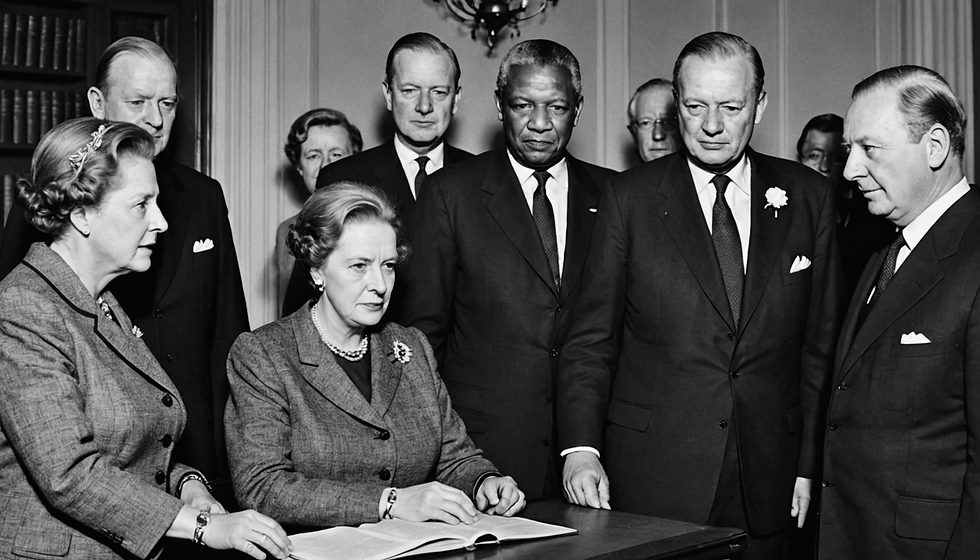Shackleton "strong determination"
- R.M. Boylan

- Feb 2
- 4 min read
Updated: Feb 9
Sir Ernest Shackleton Leadership Lessons:
The Antarctic Expedition for Business Leaders
R.M. Boylan BSc. Master's in Leadership Studies

Overview of the Expedition
Sir Ernest Shackleton (15th February 1874-5th January, 1922)
Sir Ernest Shackleton embarked on his Antarctic expedition in 1914. He was an Anglo-Irish Antarctic Explorer who was leading the British expeditions to Antartic. He was a key figure during a specific period known as the "Heroic Age of Antarctic Exploration".
Shackleton led 27 men to complete the venture. His goal was to cross the continent of Antarctica from coast to coast via the South Pole. His ship, the Endurance, set sail from England but became trapped in pack ice in the Weddell Sea, leading to a harrowing survival story which lasted 2 years that has since become legendary in leadership studies. Their plight and harrowing fight through extreme weather conditions is quite the story on leadership for business leaders. Why?
Shackleton faced not only the challenges of natural forces but also internal discord as team members began causing dissent. His sole objective was to ensure the safe return of all his men, even those who opposed him.
In the business world & politics, this is intriguing because leaders and managers are often advised by supervisors to dismiss a problematic employee. While it's simple to let someone go, a genuine leader and manager would assert, "I can change this situation; give me 3-6 months, and I will transform this employee into a star." That requires volition, incredible strategic intelligence and unwavering determination.
In business, politics and warfare, it is simpler to annihilate an enemy or destroy & plunder them through economic force or other means including technology. The real challenge is whether as a leader we have the creativity, the intelligence & mind to transform the enemy into an ally. That is our negotiation strategy & plan for iconic leadership.
If so, what would that transformation entail? How would you do it? This story is about that.
Reasons for the Expedition
Shackleton aimed to achieve several objectives:
To make a significant contribution to polar exploration.
To claim the title of the first to cross Antarctica.
To explore and map uncharted territories.
Challenges Faced
Shackleton and his crew encountered numerous challenges during the expedition:
Natural Forces: The Endurance was trapped in ice for months, leading to extreme cold, isolation, and dwindling supplies.
Dissidents: As conditions worsened, tensions rose among the crew, leading to disagreements and morale issues.
Leadership Strategies
Shackleton's leadership style was instrumental in navigating these challenges:
Keeping Enemies Close & integrity: Shackleton maintained open communication and fostered a sense of camaraderie among the crew, even with those who were dissenting. By addressing conflicts directly head on not beating around the bush with sly tactics, he was able to mitigate potential disruptions. If you read the story you get a peak into how his mind worked through this to save all the men especially his enemies. An iconic leader has the volition and mind to achieve this against all odds.
Focus on Morale: He organized activities, celebrated small victories, and ensured that every crew member felt valued, which helped maintain morale during the darkest times.
Achieving His Goal
Despite the dire circumstances, Shackleton successfully led all 27 crew members to safety. His strategies included:
Making critical decisions about when to abandon the ship and how to navigate the treacherous landscape.
Using lifeboats to reach Elephant Island, and then leading a small team on a perilous journey to seek rescue. This was approximately 346 miles/557 km from where the Endurance sank. This was the first time the men had been on solid ground in 497 days.
Demonstrating unwavering determination and adaptability, which inspired his crew to follow him through adversity.
Lessons in Business & Leadership
Shackleton's expedition offers valuable lessons for business and leadership:
Resilience: The ability to adapt to changing circumstances and remain focused on goals is crucial.
Effective Communication: Keeping lines of communication open can prevent misunderstandings and foster teamwork.
Empathy and Support: Understanding the needs, motivations unconscious and conscious and emotions of team members can enhance morale and productivity.
Visionary Leadership: A clear vision and willingness to take calculated risks can inspire others to achieve great things.
Servant Leadership: Sir Shakleton's concern for the welfare of his men and team was so remarkable that he gave his mittens to the photographer named Frank Hurley who's mittens were lost during the challenging boat journey. Shackleton suffered frostbite as a result.
Crisis Leadership in Action: Upon arriving at Elephant Island, the conditions were beyond survival and inhospitable. The chance of rescue was next to none. Shackleton decided to risk an open-boat journey to South Georgia where he was convinced help would be attainable.
Shackleton as an Iconic Leader
Shackleton is remembered as a great leader due to his:
Unyielding Determination: His commitment to the safety and well-being of his crew was paramount.
Ability to Inspire: Shackleton’s charisma and leadership style motivated his crew to persevere despite overwhelming odds.
Innovative Problem-Solving: He demonstrated creativity in overcoming obstacles, showcasing the importance of thinking outside the box.
In conclusion, Sir Ernest Shackleton's Antarctic expedition is not only a tale of survival but also a profound example of leadership, resilience, and the human spirit. His legacy continues to inspire leaders across various fields today.
References:
1). Boylan, R.M. (2006-2009). Conflicts and considerations comparing Abraham Maslow's hierarchy of needs of Jane Loevinger's model of ego development for assessing the level of development in a leader. This includes reviewing the best mind's for leadership based on cognitive, moral and emotional intelligence 2006-2025. Master's Leadership Studies Research. University of Guelph.
2). Morrell, M., Capparell, S. (1998). Shackleton's Way: Leadership lessons from the great antarctica explorer.





Comments